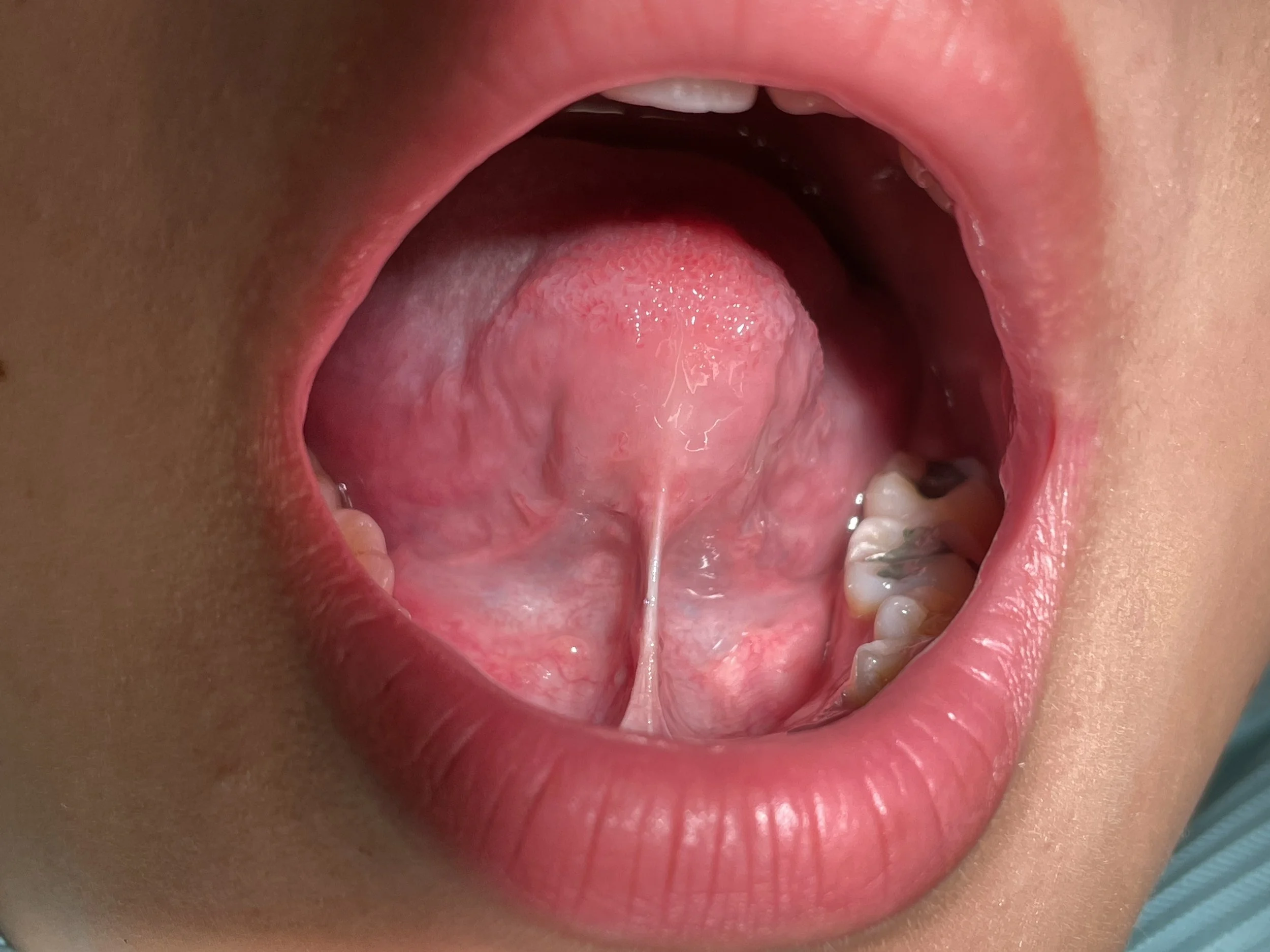Understanding Tongue Tie in Adults: Overcoming Challenges in Kissing, Speech, and Swallowing
Tongue tie, or ankyloglossia, is a condition that many people associate with infants and children, but it can also affect adults. This condition occurs when the frenulum, the small band of tissue connecting the tongue to the floor of the mouth, is too short or tight. This restriction can lead to a variety of issues, including difficulties with kissing, speech, swallowing, and even the frequent use of speech fillers like “ah” and “um.”
Signs and Symptoms of Tongue Tie in Adults
For adults, living with a tongue tie can present several challenges that impact daily life and social interactions. Here are some common signs and symptoms that may indicate you have a tongue tie:
Speech Difficulties: Adults with tongue tie might struggle with clear pronunciation. This can lead to reliance on speech fillers, as the tongue’s restricted movement makes it hard to articulate words smoothly.
Swallowing Issues: You might experience difficulty swallowing certain foods or feel like eating takes more effort than usual.
Kissing Challenges: The limited mobility of the tongue can make kissing awkward or uncomfortable, affecting intimate relationships.
Dental Problems: A tongue tie can contribute to dental issues, such as gaps between teeth or misalignment, due to the tongue not resting properly in the mouth.
Jaw or Neck Pain: Some adults experience tension in the jaw or neck muscles due to the strain of compensating for restricted tongue movement.
Emotional and Social Impact
Living with a tongue tie can also take an emotional toll. Adults often feel self-conscious about their speech, which can affect confidence in social or professional settings. The impact on personal relationships, particularly with kissing or other forms of intimacy, can lead to frustration or anxiety.
Treatment Options
Fortunately, there are treatment options available for adults with tongue tie. These can significantly improve quality of life by addressing the physical and emotional challenges associated with the condition.
Surgical Release: A frenectomy or frenectomy Tongue tie release is a simple surgical procedure that releases the frenulum, allowing greater tongue mobility. This can lead to immediate improvements in speech and swallowing.
Speech Therapy: Working with a speech therapist can help you learn techniques to compensate for tongue restrictions and improve articulation and confidence.
Myofunctional Therapy: This type of therapy involves exercises to strengthen the tongue and orofacial muscles, helping to improve tongue posture and function.
Moving Forward
If you suspect that a tongue tie is affecting your life, it’s important to consult with a healthcare professional who can provide a proper diagnosis and discuss the best treatment options for you. Addressing tongue tie can lead to a significant improvement in daily activities, speech, and overall confidence. Remember, you’re not alone in this journey, and seeking help is the first step toward a more comfortable and fulfilling life.
Conclusion
Tongue tie in adults is a condition that can subtly but significantly impact various aspects of life. By understanding the symptoms and exploring treatment options, individuals can find relief and improve their quality of life. Whether it’s through surgery, therapy, or a combination of both, addressing tongue tie can lead to better communication, enhanced relationships, and increased self-esteem. If you’re experiencing any of these challenges, consider reaching out to a healthcare provider for an assessment and guidance on the next steps. Call 9558 8988 or email us on info@painfreedentistsydney.com.au
